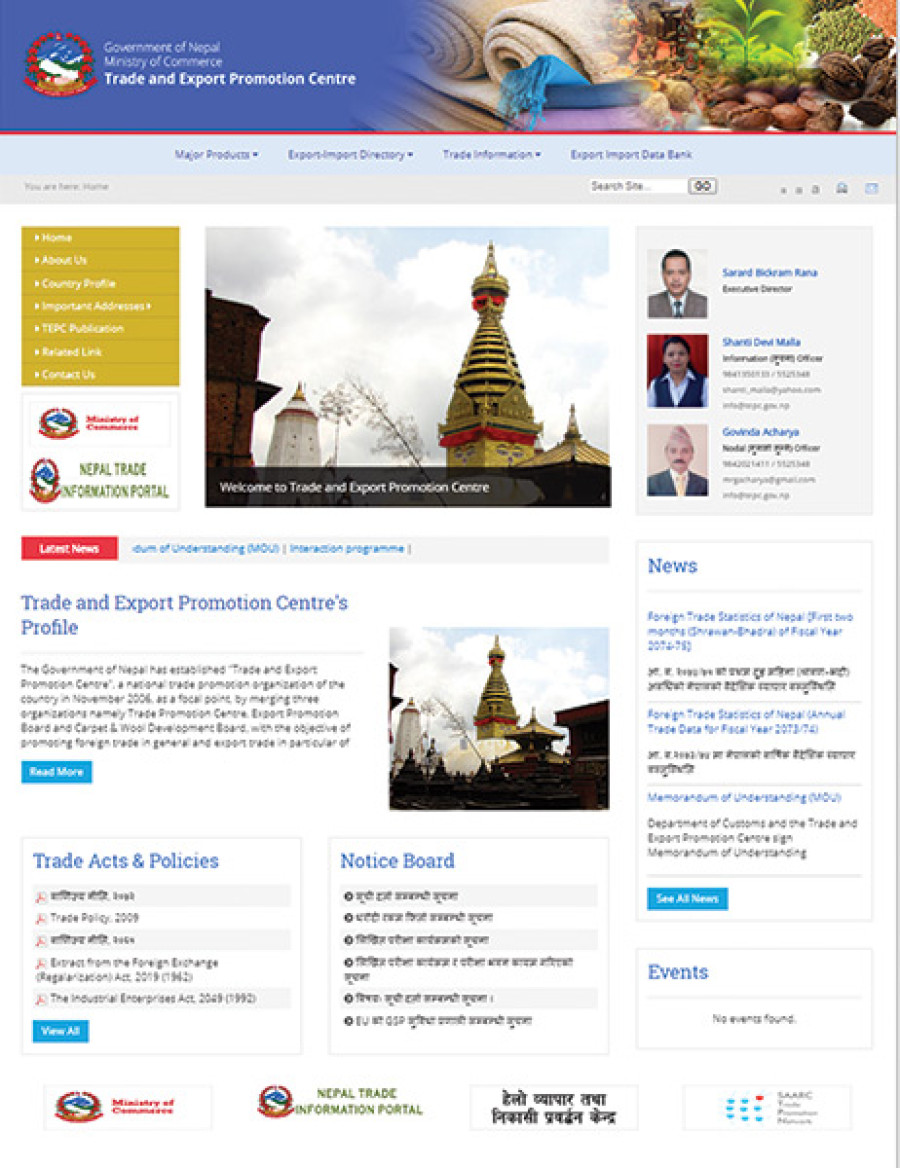Money
TEPC to launch e-commerce platform targeting SMEs
The Trade and Export Promotion Centre (TEPC) will soon launch an online platform, which could be used by small and medium enterprises (SMEs) to promote their products in the international market.
The Trade and Export Promotion Centre (TEPC) will soon launch an online platform, which could be used by small and medium enterprises (SMEs) to promote their products in the international market. The government’s trade facilitating body intends to upgrade the portal into a full-fledged e-commerce platform in the coming days, which would provide SMEs an opportunity to sell their products online abroad.
At present, the TEPC website provides detailed information on country’s foreign trade. This includes information on quantity of goods sold abroad and their monetary value, data on imports and exports through various customs points, and country-specific export data that enables traders to get a fair idea on change in demand for particular goods in export destinations. This web portal, however, does not provide a platform to link domestic producers with foreign buyers.
“We are planning to upgrade the website so that SMEs can promote their goods abroad,” TEPC Executive Director Sarad Bickram Rana said. “We will eventually upgrade the website into a full-fledged e-commerce platform so that SMEs can sell their goods online. We have already started developing necessary software for this purpose.”
The new e-commerce platform is expected to provide another avenue for Nepal to export products, which will raise export earnings and bridge the trade gap, which ballooned to Rs917 billion in the last fiscal year, up 30 percent than a year ago.
Rana, however, said SMEs may not be able to use the e-commerce platform unless the national payment gateway is built. The Nepal Rastra Bank, the central bank, has already started conducting studies to build the gateway. The national payment gateway will bring all payment gateways operated by various companies such as, e-sewa, and financial institutions under its ambit. This will streamline processes related to online payment and settlement.
The TEPC is upgrading its portal with the support of International Trade Centre (ITC), a multilateral agency under the World Trade Organisation and the United Nations. At present, the ITC has been branding Nepali products abroad, and enhancing capacity and marketing skills of exporters.
Recently, the ITC had provided training on online marketing to operators of SMEs, according to Rana. “The promoters of SMEs were taught how to take photograph of their products, add descriptions and upload them on the new portal to be launched by the TEPC,” Rana said. “In addition, the SMEs were also provided training on use of international e-commerce portals such as eBay, Amazon and Alibaba to publicise their products.”
SMEs make a significant contribution to Nepal’s gross domestic product and are creating lots of jobs as well. They can make more contribution to the economy but are handicapped because of limited production capacity, lower access to resources and lack of market access.
“Marketing constraints appear very high on the list of disadvantages faced by Nepali SMEs,” states a research conducted by South Asia Watch on Trade, Economics and Environment.




 9.6°C Kathmandu
9.6°C Kathmandu














